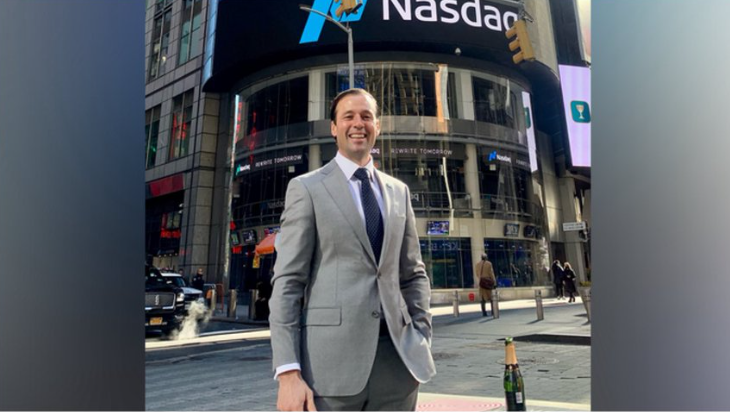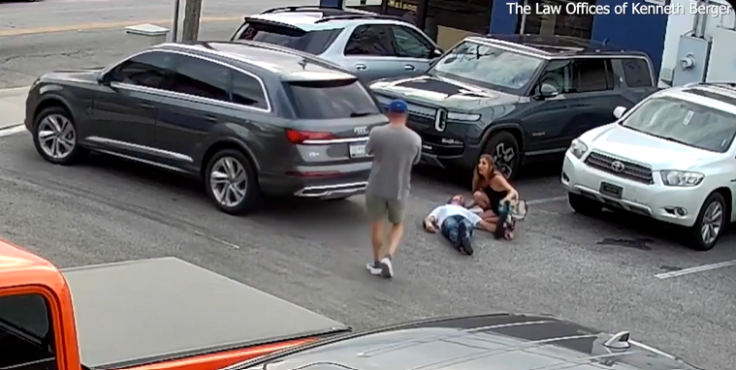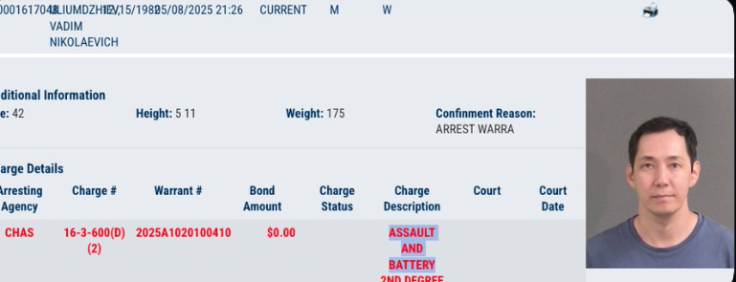
A lawsuit filed by Bryan Kobel, CEO of TC BioPharm, has sparked widespread concern over ride-hailing company Uber's driver vetting process. The suit seeks damages for physical pain, mental anguish, loss of enjoyment, and medical costs.
The biotech chief executive says his life was turned upside down after a simple request to travel with his service dog spiralled into a savage attack in Charleston, South Carolina, by the Uber driver using a fake ID.
The driver, now identified as Vadim Nikolaevich Uliumdzhiev, a 42-year-old Russian national, was operating illegally in the United States using a fraudulent driver's licence, yet was permitted to ferry passengers by Uber.
The attack, which was recorded on surveillance cameras, has prompted a renewed demand for scrutiny of Uber's driver screening processes and a commitment to passenger safety.
Brutal Assault Caught on Camera
The 45-year-old chief executive accuses Uber driver Nikolaevich of criminally assaulting him in April 2025. The altercation reportedly occurred in a restaurant car park on King Street, Charleston, after a dispute over Kobel's service dog.
When Nikolaevich refused to allow the dog into his vehicle, Kobel attempted to cancel the ride, prompting the driver to allegedly exit the car, grab Kobel by the neck, and violently headbutt and punch him.



Surveillance footage shows the CEO and his dog being knocked to the ground, while stunned witnesses called emergency services. 'He's bleeding very badly in the back of the head,' one male caller told dispatchers. 'We're going to need an ambulance... Send the police ... there's a gazillion witnesses.'
Biotech CEO knocked out by illegal immigrant Uber driver in Charleston, SC, filed lawsuit against Uber. pic.twitter.com/5RjHCYNTAo
— Laszlo Varga (@LaszloRealtor) August 21, 2025
Kobel was rushed to MUSC Health University Medical Centre, where medical staff treated asevere concussion, stapled a head laceration (seven staples), and stitched wounds. He describes waking up in a hospital bed, disoriented and unable to use screens; it took about 60 days to regain clarity of thought and vocabulary.
Driver Allegedly Fled Scene and Continued Picking Up Passengers
Despite the severity of the attack, Nikolaevich reportedly fled the scene and picked up another passenger within minutes. 'This man violently assaults me, leaves me effectively bleeding out from my head in a parking lot, speeds off and picks somebody up two minutes later,' Kobel told Fox News.
The driver was later arrested and charged with second-degree assault and battery. He was released on a $10,000 bond and placed on an immigration hold by US Immigration and Customs Enforcement (ICE) after authorities discovered he was living in the country illegally and using a fraudulent driver's licence.

Uber Account Suspended Then Deactivated
Adding insult to injury, Kobel alleges that his Uber account was suspended shortly after the incident and permanently deactivated within 48 hours. Despite providing hospital records, police documentation, and images of the assault, Uber allegedly failed to reinstate his account or offer support.
'When I left the hospital, my account had been suspended, and within 48 hours, it had been deactivated,' Kobel said. 'Despite me sharing hospital records, police records, the detective's name and phone number and images of the assault, Uber chose to victim-blame me and vilify me effectively.'
Legal Action and Calls for Accountability
Kobel filed the lawsuit in Charleston County Court against Uber Technologies, Inc. and its subsidiary, Raiser, in August 2025. His legal team argues that Uber failed in its duty of care by allowing an undocumented individual with a fake ID to operate on its platform.
'Riders rely on Uber to know who is behind the wheel,' said Kenneth Berger, Kobel's attorney. 'Instead, a man using a fake ID was allowed to assault a passenger and flee. Uber must answer for how this happened.'
The case has reignited debate over the safety of rideshare services and the adequacy of their background checks, particularly in light of increasing scrutiny over immigration enforcement and corporate responsibility.
Uber Yet to Respond Publicly
Uber has not issued a formal statement regarding the lawsuit or Kobel's allegations. The company's internal safety policies and driver verification systems are expected to come under intense examination as the case progresses.
Kobel, meanwhile, says the incident has had lasting effects on his health and professional life. 'It was about 60 days before I could really have some semblance of a normal life,' he said. 'I couldn't look at screens, I couldn't really focus my eyes... I couldn't really focus my eyes. ... I had a complete loss of vocabulary. You wonder, will I ever be whole again? Am I ever going to be the person I was? It's made me more jaded, for sure.'
This case exposes alarming gaps in rideshare safety and identity verification, raising pressing questions about how well industry giants protect vulnerable riders—especially those relying on service animals.
As Kobel's recovery continues, his lawsuit may become a pivotal test of corporate accountability in an age of digital convenience.




.png?w=600)


